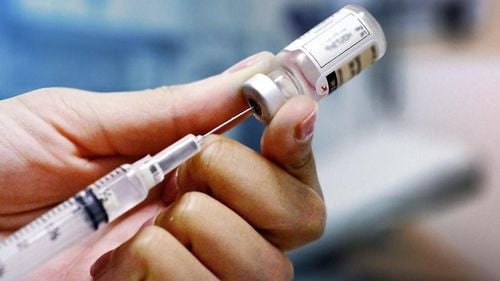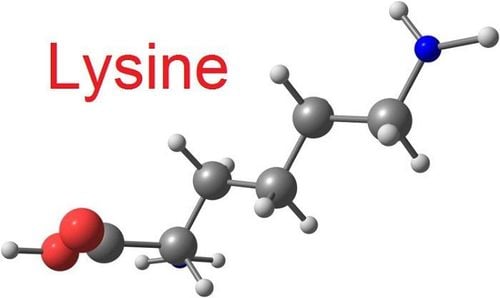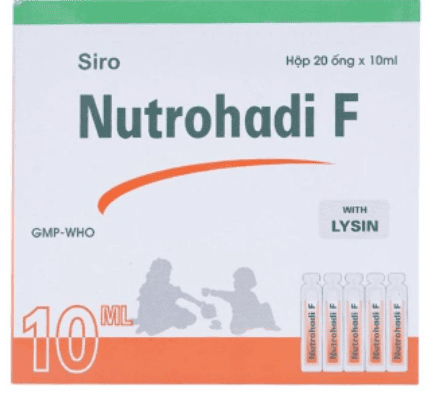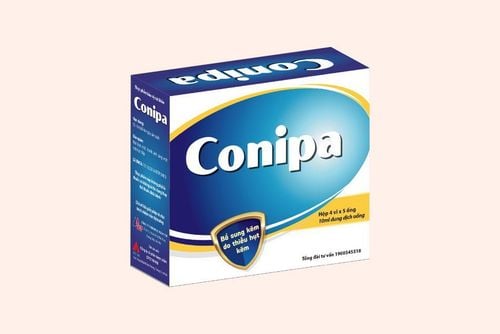This is an automatically translated article.
The article was professionally consulted with doctor Obstetrician and Gynecologist - Department of Obstetrics and Gynecology - Vinmec Hai Phong International General Hospital.
Because each person's body cannot produce zinc on its own, it is very necessary to supplement zinc for the body. For pregnant mothers with zinc deficiency, the risk of premature birth is 3 times higher, the baby is born with low birth weight and height. For children, young zinc deficiency will slow growth, be prone to malnutrition, bone formation disorders, delayed puberty....
1. General role of zinc in the body
Zinc is one of the most essential micronutrients for the body, because zinc is always involved in the structural components of cells, affects almost all biological processes in the body, activates many different enzymes, and helps to selectively affects the synthesis and breakdown of nucleic acids and proteins, which are the most important components of the human body.
Besides, the body's immunity will be enhanced by zinc because it helps to activate the immune system through the mechanism of stimulating macrophages, increasing T lymphocytes,... to fight infection .
2. What happens when mothers and children lack zinc
Zinc in normal blood will be at 100 micrograms/100ml, however, if zinc level is equal to or less than 70 micrograms/100ml, it is diagnosed as zinc deficiency.
For pregnant mothers: Zinc helps in cell division, especially during the fetal and infant stages. Once pregnant mothers are zinc deficient, there will be 3 times the risk of premature birth, low birth weight, lower height compared to normal pregnant mothers. For children: If the child is zinc deficient, it will lead to the child's growth retardation and malnutrition; disorders of bone formation leading to poor height and weight; Children may also have delayed puberty, decreased sexual function.

3. Causes and signs of zinc deficiency in mothers and children
Causes:
Poor nutrition: Low iron intake often leads to less zinc; Poor quality of meals, eating a lot of cereals, less food of animal origin is one of the causes of zinc deficiency, so it is necessary to supplement with zinc. Due to diseases: Intestinal diseases, cancer, chronic liver disease, chronic kidney disease,... make zinc difficult to absorb; Genetics: Acrodematis diseases, the body cannot absorb zinc, the skin is melasma around the elbows, knees, face, buttocks); When there is a lack of zinc, the human body will not be able to create new healthy cells, so it will lead to the following symptoms:
Abnormal weight loss Natural abnormality Wounds that are difficult to heal Damage to the eyes and skin, mucous membranes Decreased function of smell and taste Impaired immune system function Hair loss, diarrhea, respiratory infections Wounds such as burns, slow-healing sores Glossitis, nail dystrophy, hair loss, hair loss Deficiency sober Eat not delicious Slow to grow
4. How to supplement zinc for mothers and children
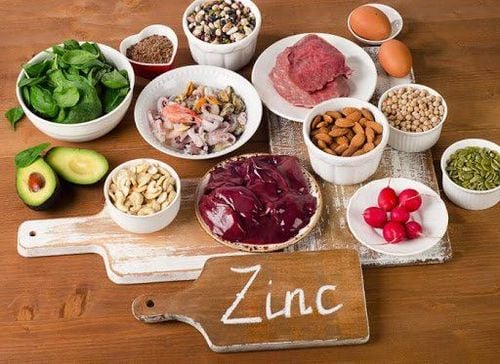
With enough zinc, short children can reach a normal height (but not necessarily the ideal height because there are many other factors including genetics). Supplement enough zinc (of course need to combine other measures), malnourished children will soon improve.
4.1. Additional dosage for mother and baby The appropriate daily dose to supplement zinc for mother and baby is as follows:
Zinc supplement for infants 0 - 6 months old: 2 mg/day; Zinc supplement for infants 7 - 11 months old: 3 mg/day Zinc supplement for babies from 1 - 3 years old: 3 mg/day; Zinc supplements for children 4 - 8 years old: 5 mg/day; Zinc supplements for children 9 - 13 years old: 8 mg/day; Zinc supplements for pregnant women: 11-12 mg/day; Zinc supplementation for nursing mothers: 12-13 mg/day 4.2. How to properly supplement zinc for mothers and babies Mothers and children properly supplement zinc according to the following method:
Supplementing with zinc by medicine: If you are deficient in zinc, you should supplement with zinc-containing drugs such as zinc gluconate or zinc. zinc sulfate. You should drink 30 minutes after eating and supplement zinc for 2-3 months. Note: Diseases that cause zinc deficiency must be treated before supplementation and when taking zinc, vitamin C, A, B6 and phosphorus should be used as these vitamins increase zinc absorption. If using more iron, use it apart, use zinc first and then use iron, because iron interferes with the absorption of zinc.
Dietary zinc supplementation: Supplement zinc for mothers and babies by eating a variety of foods in daily meals. Choose foods rich in zinc such as milk, some preparations containing vitamins and minerals, green vegetables, fruits, shrimp, crabs, oysters, fish... However, it is necessary to eat a balance between animal and plant foods. It is possible to add bean sprouts and fermented pickles to the meal because these foods have a process of increasing vitamin C content and reducing phytic acid in food, so it will increase iron and zinc absorption from the diet. Breastfeeding: Breastfeeding and appropriate zinc supplementation are the best measures to prevent zinc deficiency in infants and young children. Breastfeeding is recommended within the first half hour of birth, exclusive breastfeeding until 6 months of age, and continued breastfeeding until 24 months of age. Learn more about breastfeeding nutrition.
Please dial HOTLINE for more information or register for an appointment HERE. Download MyVinmec app to make appointments faster and to manage your bookings easily.





